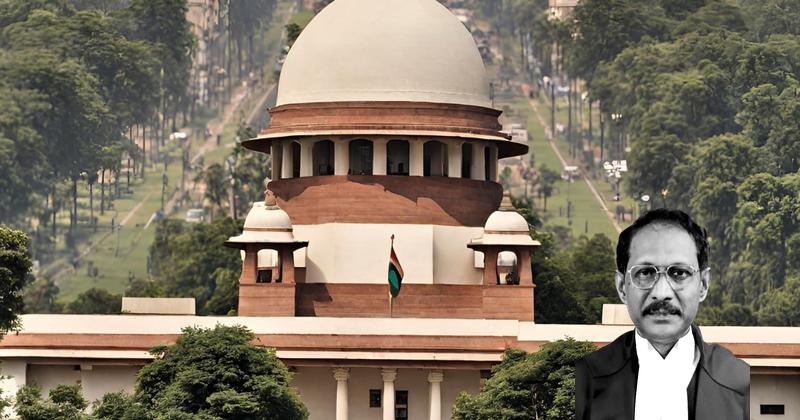Explore a detailed legal analysis of a recent court decision concerning insider trading regulations. The case delves into the interpretation and application of SEBI Regulations, emphasizing the court’s scrutiny of the definitions and conditions for insider trading violations. Understanding the legal framework surrounding securities laws is essential for ensuring fair and transparent market practices. Follow along for a comprehensive breakdown of the court’s analysis in this complex legal matter.
Facts
- SEBI issued a show cause notice to the respondent and Consolidated Infrastructure Company Private Limited for insider trading.
- The respondent was found guilty of insider trading and ordered to disgorge unlawful gains of Rs.1.09 crores.
- The show cause notices issued to Consolidated Infrastructure Company Private Limited and its Directors were closed without any directions as no case was made against them.
- The respondent filed a statutory appeal against the order of the WTM, and it was allowed by the Securities Appellate Tribunal.
- SEBI completed an investigation and issued directions on 21.03.2016 followed by a show cause notice on 29.03.2016.
Also Read: Undisclosed Conviction for Dharna Under Police Act Leads to Overturned Election
Issue
- Determined whether the information was price sensitive
- Assessed whether the information was unpublished
Also Read: Critical Analysis of Legal Principles in a High-Profile Criminal Case
Arguments
- The magnitude of what an insider did, in relation to the size of the company, may not have a bearing on the question of insider trading.
- The key factor is whether the information sought to be exploited by the insider is likely to materially affect the price of the company’s securities when disclosed.
- Unpublished price sensitive information should benefit shareholders upon disclosure.
- Insiders looking to engage in trading would typically wait until information goes public to sell holdings.
- The respondent in this case did not wait due to pressing necessity.
- Allegations of insider trading cannot be measured solely in terms of contract values or percentage of shares sold.
- The theory of proportionality cannot be directly applied in insider trading cases.
- The total value of the contracts terminated on both sides was nearly Rs.2600 crores, but the net effect for GIPL was a positive advantage of about Rs.800 crores.
- The respondent did not wait to take advantage of the situation, indicating no intention to indulge in insider trading.
- SEBI Act, 1992 or the Regulations issued thereunder do not use the expression ‘lawful excuse’ as a justification for non-compliance.
Also Read: Analysis of Shared Intention in Defamation Cases
Analysis
- SEBI Regulations aim to prevent insider trading by prohibiting individuals from taking advantage of unpublished price sensitive information.
- The motive for making a gain is essential in determining insider trading violations.
- The impact of information on securities’ prices can be beneficial or adverse and must be material.
- The case in question involved the termination of shareholder agreements, potentially affecting the company’s financial strength.
- The respondent’s sale of shares was due to a pressing need to fund a CDR package, not for unlawful gains.
- The information in Item No.(vii) of the Explanation under Regulation 2(ha) may need to be examined based on its likelihood to affect security prices.
- SEBI used different standards for the respondent and another party in the same case, raising concerns.
- The SEBI Act aims to protect investors and regulate the securities market, with a focus on legal issues in appeals.
- Prior to the 2002 Amendment Regulations, ‘unpublished price sensitive information’ was defined in Regulation 2(k) encompassing various matters directly or indirectly related to a company.
- The Amendment Regulations in 2002 split the definition, with ‘unpublished’ defined in Regulation 2(k) and ‘price sensitive information’ defined in Regulation 2(ha), including specific scenarios likely to affect securities’ prices.
- The term ‘insider’ was defined in Regulation 2(e) to include those with access to unpublished price sensitive information, while ‘dealing in securities’ was defined in Regulation 2(d) to cover various transactions involving securities.
- Regulation 4 established the guilt of insider trading for insiders dealing against the regulations.
- The Amendments in 2002 expanded the definition of ‘unpublished’ and included significant changes in company policies under ‘price sensitive information.’
- To be guilty of Regulation 3 violation, conditions include being an insider, having access to unpublished information falling under price sensitive criteria, and engaging in trading activities related to that information.
- Regulation 3 prohibits insiders from dealing in securities based on unpublished price sensitive information and from communicating such information to others, with exceptions for ordinary business communications.
- The Court must determine if the individual is an insider, had access to relevant information, and engaged in prohibited securities dealings to establish guilt under Regulation 3.
- The volume, nature of trading, and timing of transactions are considered to determine if there was an attempt to benefit from insider information.
- Mens rea is not essential to invoke the FUTP Regulations, 2003.
- The test applied is based on preponderance of probabilities.
- An insider’s attempt to benefit from information is different from mens rea.
- The court can assess if the insider’s actions were aimed at taking advantage of the information possessed.
- Selling stocks without waiting for market trends may not indicate a desire for unlawful gains.
- SEBI Act and Regulations aim to protect investor interests.
- Judicial duty includes considering immediate facts and circumstances to reach a reasonable conclusion.
- The test is based on what a reasonable or prudent person would infer from the circumstances.
- The minority judgment in Chintalapati Srinivasa Raju approved by the Securities Appellate Tribunal considered compelling circumstances for selling shares.
- The termination of the two contracts can be classified as price sensitive information
- Information regarding termination would provide an advantage to existing shareholders once it becomes public
- Sale of shares by the respondent in GIPL does not constitute insider trading
- The sale can be likened to a distress sale made before the information could impact share prices positively
- As a result, Question No. 3 is not deemed necessary for consideration
Decision
- The appeal has been dismissed.
- No order has been issued regarding costs.
Case Title: SECURITIES AND EXCHANGE BOARD OF INDIA Vs. ABHIJIT RAJAN (2022 INSC 979)
Case Number: C.A. No.-000563 / 2020



